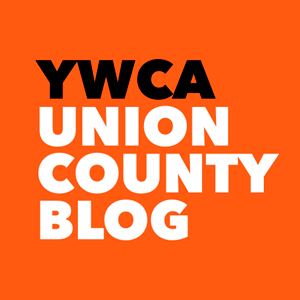
1978. Disco fever was in full swing, with Andy Gibb and the Bee Gees holding the top hits of the year. We were learning to do the Hustle. The best picture Oscar went to Annie Hall, and the first Star Wars movie had come out the year before. A gallon of gas cost 63 cents and Jimmy Carter was President. The hostage crisis in Iran would happen the following year.
Also that year, the U.S. Supreme Court, in Regents of the University of California v. Bakke, held that college admission standards giving preferential consideration to minority applicants were constitutional. The Pregnancy Discrimination Act of 1978, prohibiting employment discrimination against female workers who were (or intend to become) pregnant was signed into law. The winds of change were all around us.
For many of us, it doesn’t seem all that long ago. I was starting my senior year of high school in 1978 and starting my own journey to feminism and social justice. The women’s rights movement was making progress with the right to legal abortion secured only five years earlier. But now, another women’s issue was getting the attention of activists – what was known then as “Battered Women.” The movement had actually had its beginnings many years earlier, but the need for safety for victims was now being addressed in concrete and meaningful ways.
Women all over the county were already opening their homes to women and children seeking safety. The first domestic violence shelter opened in 1976 in New York City. It was in 1978, that the YWCA Union County, then known as the YWCA of Elizabeth, opened the first shelter for battered women in the county, called the Battered Women’s Project. The YWCA had already been in the community for 58 years working on the forefront of issues affecting women and girls and people of color. In 1929, the YWCA Union County successfully campaigned for the appointment of the first female police officer in Elizabeth. In 1935, the YWCA collaborated to develop workers’ rights codes to protect household workers in Elizabeth. And in its continued efforts to advance the rights of disenfranchised people, in 1943, the YWCA worked with the NAACP to form the local chapter of the Urban League.
In 1977, members of the YWCA Board attend the National Women’s Conference in Houston and returned with recommendations in three areas – battered women, childcare and the ERA. Within a year, our shelter was open.
We were not the only ones moving forward. In 1994, then US Senator Joe Biden (Delaware) sponsored the Violence Against Women Act (VAWA) and it was signed into law in 1994. VAWA not only gave new protections to victims, but it also provided funding for victim services. This allowed programs around the country to hire counselors, legal advocates and many other advocates helping victims understand domestic violence and make safe and informed choices. Safety planning helped victims stay safer while still in the situation, leave in a safer manner, and stay safe after they left their abuser.
While our services to victims of domestic violence started with a shelter, they have grown and professionalized along with the movement. Our services expanded over the years to meet newly identified needs of victims and their children seeking safety and a life free of abuse. These included a Court Advocacy program in 1994, our PALS Program for children in 2008, a workforce development program designed specifically with the safety needs of survivors in mind – STEP in 2013, and the newly opened Union County Family Justice Center, a joint initiative of the County of Union, the Union County Prosecutor’s Office and the YWCA Union County in 2017. Programs like these have kept our services in line with best practices in the field.
Today, the domestic violence movement, now often referred to as Intimate Partner Violence to better reflect those we serve, and its services are run by professional, licensed counselors, attorneys, experienced CEOs, and supported by development professionals such as myself. I’m proud to be a part of this movement and to help make these services available to victims and their children. But today we face new challenges. The reauthorization of VAWA is no longer a bipartisan “slam dunk.” We are seeing challenges to government funding and threats to victims who are undocumented causing them to be fearful to seek services and legal protections. In addition, specialized services for the LGBTQ community, people with disabilities, Native Americans, and others are in short supply, yet the need for policy and funding are now questioned for these populations. It’s frustrating for me to see so much progress in 40 years and now to be challenged in such profound ways.
Now is the time – to advocate, to donate, to make our voices heard for those who cannot yet raise their own. Join us this year as we celebrate 40 years of progress and raise our voice even louder!
Jennifer M. Vriens, M.C., CFRE
Director of Development and Marketing
YWCA Union County
Back